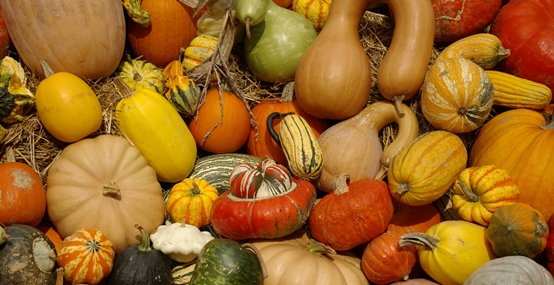Potassium Facts and Health Benefits
Potassium is an essential mineral micronutrient in human nutrition. Potassium is also the eighth or ninth most common element by mass (0.2%) in the human body. Only the major minerals calcium and phosphorus are more abundant.
Potassium plays these key roles to optimum health:
Body Water Balance. Potassium is a key factor in influencing osmotic balance between cells and the interstitial fluid by the so-called Na+/K+-ATPase pump.
Neuron and Brain Function. Our brain contains tens of billions of neurons, each forming connections. The action potential of these neurons connections depends on electrolytes, mainly sodium and potassium. Potassium plays a key role in Low levels of potassium can interrupt electrical signals that drive the brain, causing confusion, sluggish thoughts and brain fog.
Prevent and Control Hypertension and High Blood Pressure. High sodium intake is a major contributing factor to high blood pressure and hypertension. A diet low in potassium and high in sodium may be a factor in high blood pressure. Increasing Potassium in the diet may protect against hypertension in people who are sensitive to high levels of sodium as Potassium helps flush the body with excess sodium. One possible explanation for potassium's protective effect against hypertension is that increased potassium may increase the amount of sodium excreted from the body.
Muscle Function and Contraction. Potassium's role in transmitting electrical impulses gives Potassium an important role in muscle contractions. The balance between sodium and Potassium creates an electrical and chemical gradient that functions to transport molecules in and out of the cell and transmit nerve signals that induce muscle contraction.
Athletes Need More Potassium. For optimum performance, athletes, especially endurance athletes, need more Potassium to replace Potassium lost from muscle during exercise and the smaller amount lost in sweat. Low Potassium can cause muscle cramping and cardiovascular irregularities. Eating foods high in Potassium can prevent these symptoms. Eating foods high in Potassium prior to an athletic event will improve athletic performance. See also Articles on Hydration and Electrolytes
The best source of Potassium are natural food sources. Potassium is found in milk, dairy products, fruits, vegetables and meat. Taking Potassium supplements is generally not recommended for people with high blood pressure. Instead, a variety of Potassium-rich foods should be eaten daily.
Natural Food Sources of Potassium
In general, it is best to obtain Potassium from natural food sources. Here is a list of natural food sources of Potassium.
| Food | Serving size | Potassium amount (milligrams) |
|---|---|---|
| Winter squash | 1 cup | 896 mg |
| Cooked spinach | 1 cup | 840 mg |
| Sweet potato | 1 medium | 695 mg |
| Potato | 1 medium | 610 mg |
| Plain nonfat yogurt | 8 ounces | 579 mg |
| Banana | 1 cup | 540 mg |
| Orange juice | 8 ounces | 496 mg |
| Halibut | 3 ounces | 490 mg |
| Cooked broccoli | 1 cup | 460 mg |
| Cantaloupe | 1 cup | 430 mg |
| Tomato | 1 cup | 430 mg |
| Pork tenderloin | 3ounces | 382 mg |
| Fat-free milk | 8 ounces | 380 mg |
| Lentils | 1/2 cup | 366 mg |
| Salmon farmed | 3ounces | 326 mg |
| Lamb loin chop | 3ounces | 320 mg |
| Strawberries | 1 cup | 255 mg |
| Raisins | 1/4 cup | 250 mg |
| Chicken Breast | 3 ounces | 218 mg |
| Tuna, light, canned | 3 ounces | 201 mg |
Potassium Recommended Daily Intake
Most people do NOT get enough Potassium. Here is a list of the daily recommended dietary intake of Potassium from the Food and Nutrition Board, Institute of Medicine.
| Age (years) | Recommended potassium intake (milligrams a day) |
|---|---|
| 1-3 | 3,000 |
| 4-8 | 3,800 |
| 9-13 | 4,500 |
| 14 and older | 4,700 |
| Women who are breast-feeding | 5,100 |
Potassium Supplement Toxicity
Potassium Supplements Toxicity. Potassium supplements, other than the small amount included in a multivitamin, should be taken only under your doctor's supervision. Large doses of supplemental potassium can cause dangerous side effects. Potassium supplements side effects can include diarrhea, stomach irritation, and nausea. At higher doses, muscle weakness, slowed heart rate, and abnormal heart rhythm may occur. There are many medications that impact negatively with potassium supplement or cause problems with potassium levels. You should not use potassium supplements without first talking to your health care provider if you are taking certain medications.
More about Ralph Teller. See Ralph's 1Vigor Log Calendar.
<-- back to top






